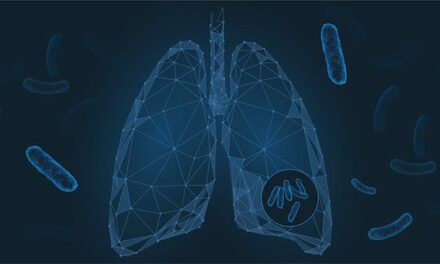Tuberculosis is on the rise and increasing resistance to the two most potent first-line TB drugs – Isoniazid and Rifampin – is reducing the arsenal of therapeutics. But Actiphage might be able to help.
There is a need for better diagnostic tests to accurately predict drug treatment success at an earlier stage, minimizing the development of drug resistance. Actiphage from PBD Biotech offers the potential for a ‘test of cure’ for TB drug treatment by confirming active TB has been eradicated from the bloodstream.
Test of Cure for TB Drugs
Actiphage is a phage-based test that may support drug management and the development of new TB drugs. When added to a blood sample, Actiphage finds and penetrates the mycobacteria, overtaking its replication infrastructure to produce more phages and enzymes, which break down the tough cell walls and release the bacterial DNA for analysis with PCR.
Drug resistance was widely discussed on the recent World TB Day, and Jane Theaker, CEO of PBD Biotech, developers of Actiphage, says that the in-development diagnostic is attracting interest from drug developers.
“We had anticipated that the main market for Actiphage would be for the screening of those with latent TB infection to find the ‘missing three million’ – the cases of active TB that go undiagnosed and untreated. However, a new opportunity is emerging to monitor the response to treatment,” Theaker says. “The traditional tests, such as IGRA, measure the immune response to infection, which can be heightened even when the patient is recovering. Bacterial DNA circulating in the blood may also be from past infection.
“Actiphage is unique as it uses a phage specific to Mycobacterium tuberculosis which only selects live bacteria that are actively replicating, indicating the disease state of the patient.”
Need for Multiple Drugs to Treat TB
Most commonly used drug regimens for the treatment of drug-sensitive TB require patients to take multiple drugs for up to six months with routine clinical monitoring. Patients with drug-resistant forms of TB can face longer and more complex treatment journeys, often with significant side effects and treatment costs.
Accurate and rapid drug resistance testing is essential for early diagnosis of both drug-sensitive and drug-resistant TB, but access to testing can be limited due to high costs and technical challenges.
Actiphage has the potential to allow for genotyping of MTB strain. It releases M.tuberculosis DNA from mycobacteria in a blood sample for downstream amplification and Sanger Sequencing or NGS (Next Generation Sequencing).
“Collaborations are vital for the development of pan-TB treatment regimens as treatment requires multiple drugs,” adds Theaker. “With Actiphage there is potential also to identify antimicrobial resistance mutations, which would give doctors insights into which drug combinations to use, increasing the efficacy of these new regimens.”





